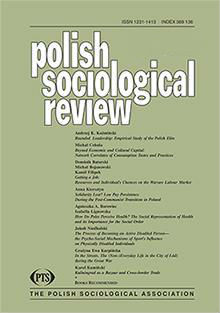On Secularization, Modernity and Islamic Revival in the Post-Soviet Context
On Secularization, Modernity and Islamic Revival in the Post-Soviet Context
Author(s): Dobrosława Wiktor-MachSubject(s): Social Sciences
Published by: Polskie Towarzystwo Socjologiczne
Keywords: religion; Gellner; Islam; secularization; Caucasus and Central Asia; modernity
Summary/Abstract: The paper reveals contemporary developments in post-Soviet Islam that challenge the predominant juxtaposition of Islam against secularization and modernization. I argue that the question Gellner has posed: why is Islam so secularization-resistant, is based on inappropriate assumptions. As the anthropological data from field research among Muslims in post-Soviet regions show, there are trends and processes in contemporary Islam that do not fit into "Islam as a secularization-opposed force" thesis. When the problem is approached from a perspective of diversity inside a religious field (Bourdieu) and competing "discursive traditions" then it's possible to identify religious groups that have positive attitudes towards secular institutions and modern solutions. Next, problems with Gellner's vision of contemporary Islam are discussed, particularly concerning the shift in power relations between "folk" and "pure" (or "fundamentalist") Islam. Finally, I argue that overcoming the notion of one homogeneous modernity enables us to understand the modernizing forces in Islam.
Journal: Polish Sociological Review
- Issue Year: 175/2011
- Issue No: 3
- Page Range: 393-409
- Page Count: 16
- Language: English

